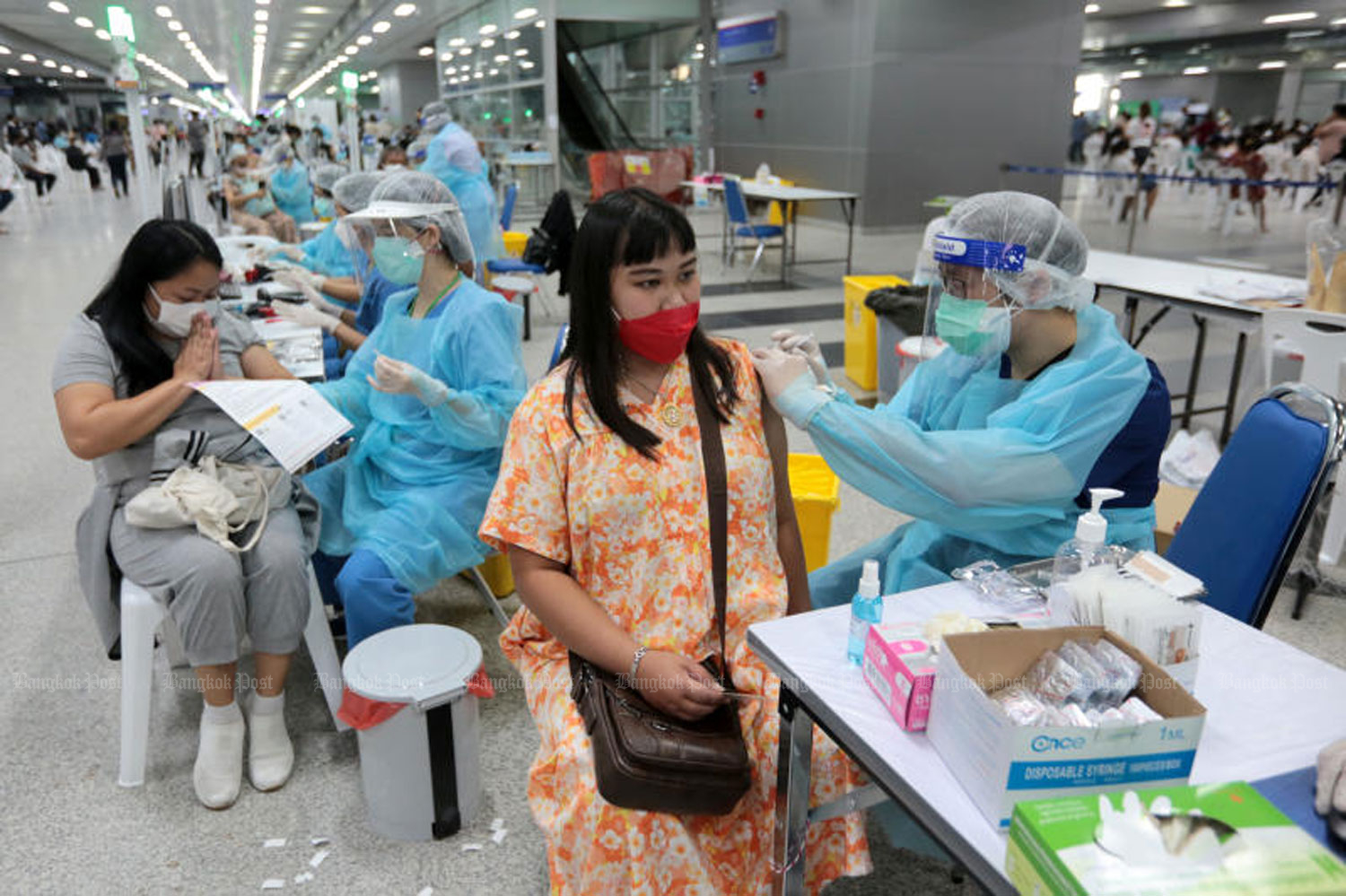
Medical personnel and other experts provide the most reliable sources of information about the Covid-19 pandemic, but almost half the population trust social media, according to the result of an opinion survey by the Suan Dusit Rajabhat University, or Suan Dusit Poll.
The poll was conducted online during July 19-22 on 1,691 people throughout the country to compile their opinions on the flow of information about Covid-19, with respondents allowed to choose more than one answer to each question.
Asked what sources of information they thought were reliable, 65.30% chose doctors and medical personnel; 59.75% cited academics, researchers, experts and influencers; and 46.98% social media such as Facebook, Twitter and Instagram.
Asked what kind of information they found most valuable, 72.41% chose data concerning the efficacy and side-effects of vaccines against the coronavirus; 71.23% measures taken by the government in high-risk areas; 68.38% the number and location of available hospital beds; 62.49% methods of treatment and the results of studies and research on the virus; and 61.25% how to identify symptoms of Covid-19.
Asked how they assessed the flood of information, 43.99% said they were confused, 40,75% fairly confused and 15.26% not confused.
Asked what information they found confusing, 74.61% ticked the government's vaccine management, registration and postponements of vaccination appointments; 73.11% cited cross-vaccine jabs and third "booster" jabs; 72.23% the safety, efficacy and side-effects of vaccines; 66.23% closures of businesses and economic relief measures; and 55.53% restrictions on travel between provinces.
Asked how they had responded to information on the pandemic, 90.78%, said they took better care of themselves; 81.07% took better care of other family members; 79.95% avoided leaving home or meeting other people; 59.84% looked for more information about protecting themselves; and 46.82% looked for ways of getting vaccinated.